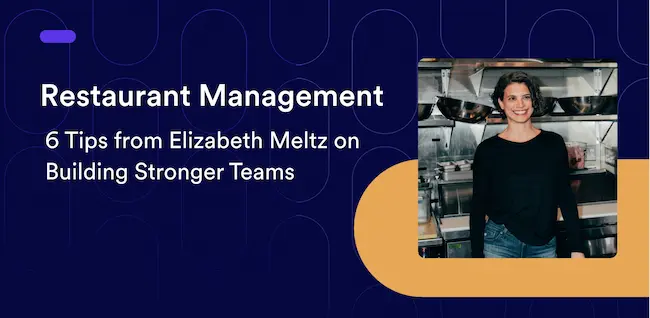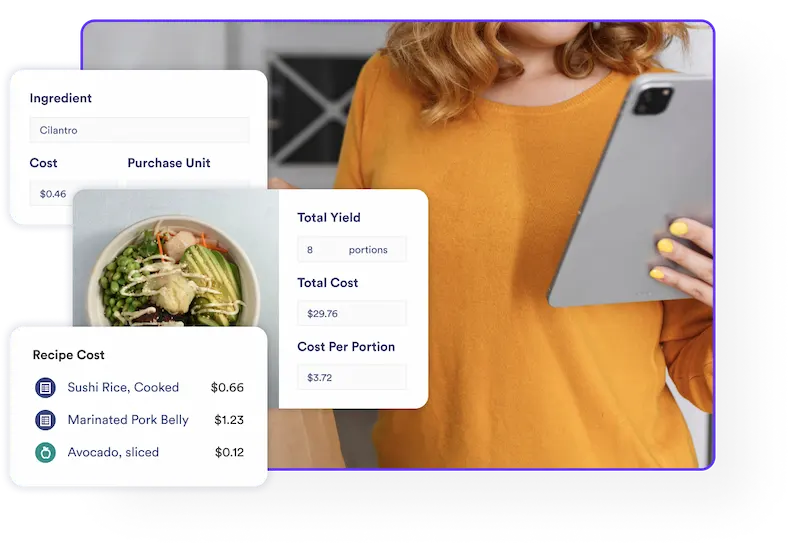Last year on The meez Podcast, Josh Sharkey sat down with Vojtech Vegh, a Slovakian-born chef whose passion for zero waste and plant-based cooking has taken him across the globe, including a stint in Cambodia where he opened the world’s first vegan and zero waste restaurant.
Their conversation delved into Vojtech’s journey, his philosophy on food waste, and how he has been helping restaurants implement zero-waste practices.
A Chef’s Journey: From Slovakia to Cambodia
Vojtech’s culinary journey is anything but conventional. Born in Slovakia, he spent 12 years working in professional kitchens worldwide before opening his restaurant in Cambodia. This wasn’t just any restaurant—it was the first of its kind, entirely vegan and committed to zero waste.
“I used to travel out to Southeast Asia a lot back when I was younger and I kind of fell in love with that place,” Vojtech shared. He was particularly drawn to Siem Reap, a city with a strong community of local business owners and numerous initiatives focused on waste reduction.
However, the decision to make his restaurant vegan wasn’t initially planned. Vojtech explained that the lack of high-quality meat and other animal products in Cambodia led him to pivot to plant-based cooking.
“It was impossible to serve anything local…organic food is non-existent in Cambodia,” he said. Rather than compromise on quality, he embraced the challenge of creating delicious vegan dishes using local ingredients.
Meat as a Luxury: A Thoughtful Approach to Consumption
One of the most intriguing parts of their discussion was Vojtech’s perspective on meat consumption. He described meat as a luxury, something to be consumed sparingly and carefully.
“We got so used to eating meat all the time…breakfast, lunch, dinner, snacks. We eat meat for dinner every meal,” Vojtech remarked, highlighting how ubiquitous meat has become in our diets, often at the expense of quality. He advocates for a more thoughtful approach—reserving meat for special occasions and ensuring it’s of the highest quality when it is consumed.
Vojtech also touched on the cultural significance of meat in his native Slovakia, referencing the national dish, Bryndzové Halušky, a potato spaetzle with bacon. Despite its meat component, he pointed out that the dish is often served in a vegetarian version with fried onions instead of bacon, showing that traditional dishes can be adapted to align with modern dietary choices.
"Are willing to buy the cheapest chicken or the cheapest beef just for the sake of having meat?That's where it stops making sense for me. I would rather treat meat like caviar and limit it to the best pieces, to the highest quality of organic when available and when I can afford it."
Defining Zero Waste in the Kitchen
The core of the conversation revolved around Vojtech’s zero-waste philosophy. When asked to define what zero waste means in the context of food, Vojtech emphasized that it’s about making the most out of every ingredient.
Items like pineapple tops and onion skins, which have little to no nutritional value and are difficult to repurpose, fall outside his definition of food waste. Instead, his focus is on the excessive trimmings and parts of ingredients that are often discarded but are fully edible and nutritious.
"Zero food waste is using any part of the ingredient that is edible or has very low nutritional value. It doesn't just apply to vegetables. All the fatty parts of the meat that are trimmed and never even rendered for fat, only discarded and wasted, that is completely edible."
Opening a Zero Waste Restaurant: Challenges and Innovations
One of the most remarkable aspects of Vojtech’s journey was his attempt to open a restaurant without a waste bin—an endeavor that required meticulous planning and a commitment to sourcing ingredients that wouldn’t produce unnecessary waste.
This pushed Vojtech to the brink, forcing him to consider every aspect of his operations. He eventually allowed himself a compost bin in the garden, but only for inedible parts of produce like pineapple skins. This experience highlighted the challenges of achieving absolute zero waste but also underscored the importance of being realistic and adaptable in the pursuit of sustainability.
“I didn’t even have it for a long time. I opened the restaurant without the bin, without any bin at all, with no compost, nothing. There were no boxes, there was no spices, there was nothing. It was either made from scratch or I didn’t have that.”
The Epiphany: Seeing Waste Where Others Don't
Vojtech’s path to zero waste was ignited by his acute observation of the wasteful practices in kitchens. His frustration grew as he witnessed chefs discarding perfectly usable parts of vegetables and ingredients. For instance, he saw the excess trimmings of leeks and carrots, which, if not managed properly, could lead to significant waste. This realization wasn’t just about individual scraps but about a systemic issue that persisted daily.
His approach was to question everything, seeking to understand how these seemingly minor decisions collectively contribute to substantial waste.
"Why trim away 10 centimeters of leeks or discard the last bit of puree in a bowl? It’s not just one instance; it’s a repeated practice that costs money over time."
Redefining Waste Management
Vojtech’s perspective on food waste management is both radical and practical. He argues that traditional approaches, which often treat waste reduction as a reactive measure, are fundamentally flawed. Instead, he advocates for a proactive mindset that starts with menu planning.
By integrating byproducts into the menu design, kitchens can minimize waste before it even occurs. For example, if leeks are used in a dish, the trimmings should be considered for other uses, such as stocks or garnishes.
One of Vojtech’s key strategies is to repurpose food byproducts creatively. Instead of viewing them as waste, he encourages their incorporation into new dishes. A classic example is using cauliflower leaves, which are often discarded, to replace cabbage in salads or make slaw. This approach not only reduces waste but also adds unique flavors and textures to dishes.
"It doesn't happen when it's on your chopping board. The food waste happens when the menu is being written. That's when you create food waste. When you write the menu and I don’t know, leeks, carrots, something comes up, you already know how you're going to process that ingredient in your menu and what the byproduct will be."
Balancing Labor and Waste Reduction
An essential aspect of Vojtech’s methodology is understanding the balance between labor costs and waste reduction. He contends that food waste reduction should not impose additional labor costs. Instead, it should be seamlessly integrated into the existing kitchen workflow. The focus should be on planning and utilizing ingredients effectively rather than expecting line cooks to manage waste reduction as an additional task.
For example, Vojtech emphasizes that replacing pickled cucumbers with pickled cauliflower leaves in a dish doesn't increase labor—it simply changes the ingredients used. "You don’t have to do the pickled cucumbers anymore. You’ll be picking cauliflower, which takes the same amount of time," he explains. This shift in perspective helps kitchens reduce waste without adding extra work.
You have to incorporate that byproduct in a circular way back, either into the same dish, in the same menu, or in a different outlet. But the waste of the byproduct has to find its place. When you're writing the menu, it is not the responsibility of the chef de parties or the line cooks to upcycle your items. If an ingredient is an essential part of your dish on the menu, there is not any extra work anymore because you need it.
Practical Applications in the Kitchen
Vojtech’s work extends beyond fine dining into casual and large-scale food operations. His clients often include casual restaurants where the impact of waste reduction can be particularly profound. For instance, substituting cauliflower leaves for cabbage in salads not only reduces waste but also eliminates the need to order additional ingredients.
Other practical techniques for waste reduction include:
- Trim Less, Peel Less: Many vegetables, such as carrots and potatoes, don’t need peeling. Utilizing the skins can add flavor and reduce waste.
- Repurpose Trimmings: Ingredients like broccoli stalks or potato peels can be transformed into useful components like coleslaw or crumbles.
- Fresh Ingredients: Ensuring ingredients are fresh is crucial for effective zero-waste practices. Using stale or damaged produce isn’t advisable as it compromises the quality of the final dish.
You have to know what you're going to do with that waste product at the moment that you are creating it. Ideally it goes where you can sell it with a margin. Staff food is also great. But the number one ambition should always be to put it on the consumer's plate. The majority of my work is to basically reduce the food waste when you create a dish. "
The Book and Beyond
Vojtech’s book, "Surplus: The Food Waste Guide for Chefs,” has been a significant tool in spreading his zero-waste philosophy. With thousands of copies sold, it has become a resource for chefs and restaurants looking to adopt more sustainable practices.
For those interested in starting their zero-waste journey but lacking direct access to Vojtech’s expertise, his book is a valuable resource. However, he emphasizes that the key to successful waste reduction lies in meticulous planning.
As Vojtech explains, the responsibility lies with those who create the dishes and menus. It’s about making informed decisions that prevent waste from occurring in the first place. The book is a starting point for chefs and restaurant operators to open their minds and changing perspectives.
Looking ahead, Vojtech hopes to see zero-waste practices become standard in the industry. His goal is for waste reduction to become an inherent part of every kitchen’s operation, not just a distinguishing feature.
"If you're wasting food, then you go bankrupt. Like you're doing business and you're wasting the main product that you're selling. There is no reason to do that. You have to adapt. Food waste is a huge trend but my hope is it will become a standard. That's the intention of all my work. It's to make it something normal."
Getting Started with Zero Waste Cooking
Vojtech’s dedication to zero-waste cooking extends beyond his kitchen. He now spends his time helping other chefs and restaurants implement these practices, sharing his knowledge through workshops, chef training, and his book. Vojtech’s pragmatic approach to zero waste—focused on making small, manageable changes—offers a blueprint for others looking to reduce their environmental impact.
For those unable to work directly with Vojtech, he advises starting with a mindset shift. "Question everything," he suggests. By rethinking how ingredients are used and processed, kitchens can make significant strides toward minimizing waste.
Vojtech Vegh’s approach to zero waste is a testament to how questioning established practices and thinking creatively can lead to more sustainable and efficient kitchen operations. His work serves as an inspiration for chefs and restaurant owners striving to make a positive impact on the environment and their bottom line.
Listen to the full conversation with Vojtech Vegh on The meez Podcast



.webp)



